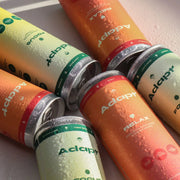What NHS reform is lacking: Nature as Medicine
Imagine this: at your next GP appointment, you arrive at a vibrant outdoor space where you can relax and compose your thoughts before seeing the doctor. Alongside your normal medications they prescribe you a community garden project, a local hiking group, or some yoga in the park.
Here, you meet other like-minded people going through similar circumstances. You learn more about your own condition through people who truly understand it, you acquire new skills, and you form lasting bonds and friendships.
When you return to your GP, your condition is well-managed. Your stress hormone levels, your blood pressure, and your heart rate, are all lowered. You become less dependent on medication, and start to feel like yourself again.
This is Green prescribing, and it's what is lacking from the government’s 10-year plan for the NHS.
“Fit for the Future” - The Government’s new 10-year plan for the NHS
The NHS is undergoing one of its most ambitious transformations in its 77-year history. The new plan outlines three radical shifts that will reshape healthcare delivery: from analogue to digital, from hospital to community, and from treatment to prevention.
It could be the drastic reform that the NHS desperately needs, but it needs to be done right. And nature should be at the centre of it all.
The Evidence Base: Why Nature Heals
The evidence for the benefits of nature is overwhelming:
For your mental health: Countless studies have shown that time in nature can lead to improvements in symptoms of depression, anxiety, addictions, emotional regulation and difficulties associated with autism
For your physical health: Regular contact with nature can reduce stress hormone levels, lower blood pressure and a lower heart rate.
For your community: Green prescribing activities like gardening or wildlife conservation naturally builds social connections, helping to reduce loneliness and social isolation that affects millions of people in the UK.
What Needs to Happen
That’s all well and good, but why isn’t nature a core part of the NHS now?
The government’s new 10-year plan creates a perfect opportunity to embed green prescribing at the heart of healthcare. Here's what needs to happen:
Make it routine: Green prescribing should be as normal as prescribing medication. GPs need training, resources, and clear pathways to outdoor activities.
Invest in green infrastructure: Parks, community gardens, and therapeutic outdoor spaces should be seen as health infrastructure, not just nice-to-haves.
Use technology wisely: The NHS App could include a geolocation feature showing local green prescribing opportunities, making it as easy to find a nature group as it is to book a GP appointment.
Fund it properly: Long-term contracts with outdoor activity providers, not just short-term project funding.
Measure what matters: The government wants to use wearable technology to track health data. We should expand this to track wellbeing outcomes, to demonstrate the real impact of green prescribing.
The Vision
The NHS is at a crossroads. We can continue pumping money into a system that treats people after they're already sick, or we can invest in approaches that keep people healthy in the first place.
Using technology like the NHS app, we can make green prescribing and nature-based interventions accessible, and a keystone of our future healthcare system. Through this, we can reshape both mental and physical health, but importantly, we can develop the community bonds that are desperately lacking in our world.
Imagine a healthcare system where:
-
Your GP prescribes a morning walk alongside your medication
-
The NHS App connects you to a hiking group as easily as booking a blood test
-
Hospital grounds become therapeutic spaces where healing happens outdoors
-
Mental health support grows in every park and green space
-
Older adults find purpose and friendship through conservation volunteering
-
Our loneliness epidemic is healed one community garden at a time
This isn't just about individual health, it's about weaving back together the social fabric of our communities. In a world where we're more connected digitally but more isolated personally, green prescribing offers something profound: real human connection in spaces that naturally heal.
The technology exists. The evidence is overwhelming. The need is urgent. The only question is whether we have the systems in place to embrace a future where medicine and nature work hand in hand.
Because sometimes, the best medicine isn't found in a pharmacy, it's found in a park, surrounded by people who care.



